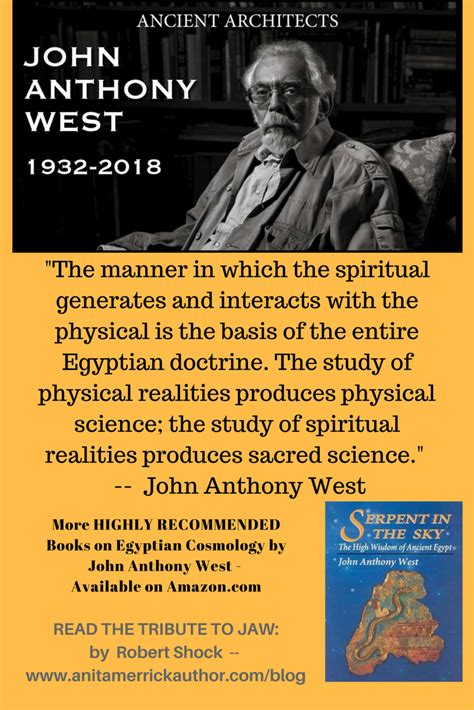A Quote by Margaret Fuller
The man of science dissects the statement, verifies the facts, and demonstrates connection even where he cannot its purpose.
Related Quotes
No doubt science cannot admit of compromises, and can only bring out the complete truth. Hence there must be controversy, and the strife may be, and sometimes must be, sharp. But must it even then be personal? Does it help science to attack the man as well as the statement? On the contrary, has not science the noble privilege of carrying on its controversies without personal quarrels?
In my view, The Temple of Man is the most important work of scholarship of this century. R. A. Schwaller de Lubicz finally proves the existence of the legendary 'sacred science' of the Ancients and systematically demonstrates its modus operandi. It was this great science-based upon an intimate and exact knowledge of cosmic principles-that fused art, religion, science, and philosophy into one coherent whole and sustained Ancient Egypt for three thousand years.
Love is a chemical reaction, but it cannot be fully understood or defined by science. And though a body cannot exist without a soul, it too cannot be fully understood or defined by science. Love is the most powerful form of energy, but science cannot decipher its elements. Yet the best cure for a sick soul is love, but even the most advanced physician cannot prescribe it as medicine.
Belief Systems contradict both science and ordinary "common sense." B.S. contradicts science, because it claims certitude and science can never achieve certitude: it can only say, "This model"- or theory, or interpretation of the data- "fits more of the facts known at this date than any rival model." We can never know if the model will fit the facts that might come to light in the next millennium or even in the next week.
Science, in its ultimate ideal, consists of a set of propositions arranged in a hierarchy, the lowest level of the hierarchy being concerned with particular facts, and the highest with some general law, governing everything in the universe. The various levels in the hierarchy have a two-fold logical connection, travelling one up, one down; the upward connection proceeds by induction, the downward by deduction.
The purpose of scientific method is to select a single truth from among many hypothetical truths. That, more than anything else, is what science is all about. But historically science has done exactly the opposite. Through multiplication upon multiplication of facts, information, theories and hypotheses, it is science itself that is leading mankind from single absolute truths to multiple indeterminate, relative ones.
A man with a half volition goes backwards and forwards, and makes no way on the smoothest road; a man with a whole volition advances on the roughest, and will reach his purpose, if there be even a little worthiness in it. The man without a purpose is like a ship without a rudder - a waif, a nothing, a no man. Have a purpose in life and having it, throw such strength of mind and muscle into your work as God has given you.




































